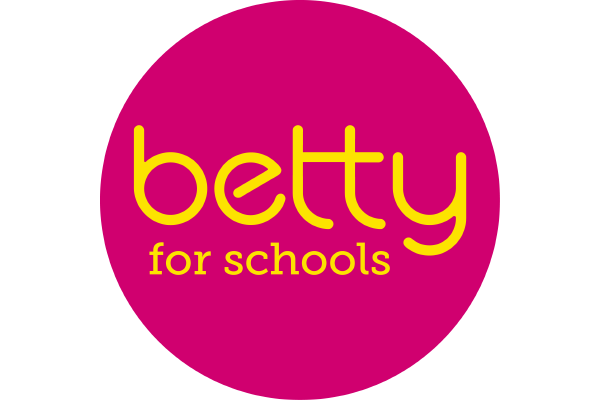Knowledge is power: why we need to start teaching about periods in primary school - Sponsored article

When the main character in Margaret Atwood’s novel Cat’s Eye starts her period, she describes herself with relief as being finally among the knowing. This happens to her in Grade 10, our Year 11, at around 15 years old.
If the book was published today, the character wouldn’t have had to wait nearly so long: on average, girls in the West now start menstruating at the age of 12 - and many of them are even younger.
There are plenty of theories about why this is: improvements in nutrition and health, environmental changes and a higher body mass index at a younger age, just for a start. But education hasn’t yet caught up.
Recent psychological research reveals that girls who start menstruating early would benefit from early intervention to prepare them for the changes ahead.
In fact, this kind of education can help all primary pupils, girls and boys, to understand the physical and emotional impact of periods.
No one would claim this is going to be easy for beleaguered primary teachers, who already feel overwhelmed by the demands of the curriculum. But most will seize the chance to improve young people’s wellbeing and relationships, and prepare them to face at least one of life’s changes with confidence.
So, how can we teach this challenging subject to upper key stage 2 children with wisdom and courage, while minimising the cringe factor?
Say it with flowers
The best place to start may not be where you think. Before children understand the science of periods they need to understand the basic process of reproduction - and where better to begin than with plant and animal life cycles?
Routinely use appropriate scientific vocabulary early in the curriculum. You could display these on science working walls and reward children for using the words correctly: egg, ovum, ovary, fertilisation, seed, sperm, cycle, reproduction, hormones.
If these terms are used regularly by both teachers and pupils, it’s easier to make the jump to human biology.
One change among many
Both girls and boys experience lots of physical and emotional changes at puberty, so explore these in a lively and non-threatening way in the context of growing and changing generally.
Most young people are fascinated by the physiological changes and how they will be affected by them. Taught like this, menstruation becomes just one of the changes that will happen to girls, and not something strange and taboo.
In fact, we’ve found it very effective to teach boys and girls together on this subject. It removes the mystery surrounding periods and helps children learn the importance of talking about sensitive issues in relationships.
Pupils have the chance to show empathy and understanding, and they are less likely to show off to impress others.
One disadvantage is that children may feel too self-conscious to ask gender-specific questions, but there are ways to tackle this:
1. Introduce a ‘worry box’
Put a special box in the classroom and let pupils know they can put any questions or concerns in it anonymously. Are several of them asking the same question? Answer it in future lessons. And always make sure the children know you’re happy to talk to them privately.
2. Use male and female teachers
Show children that menstruation is important for everyone by having both men and women talk about it - after all, everyone is going to be affected by periods at some point, either personally or as part of everyday life and relationships.
If there are no male teachers in Years 5 and 6, consider asking a deputy or headteacher, a games teacher or a parent. The more “unlikely” the role model, the better they will be at busting stereotypes.
3. True or false?
Once you’ve taught the facts about periods, create true/false statements for pupils to debunk in class. Things like: “If you start your period later, you might not be able to have children”; “you can’t take part in sport while you’re on your period”; “you will bleed through your clothes if you don’t change your sanitary towel during lessons”.
Truth in fiction
And periods are just the start of the learning. Turn a science lesson about menstruation into a PSHE session with the help of SEALs resources (social and emotional aspects of learning) on the subject of change.
Or try using passages from Power of Reading texts, a common basis for English teaching in primary schools, to draw out themes in sex education - a great way to contexualise and embed understanding.
Examples might include There’s a Boy in the Girls’ Bathroom by Louis Sachar, or Locomotion by Jaqueline Woodson and Journey to the River Sea by Eva Ibbotson, both of which talk about change more generally.
Learning effective PE warm-up and cool-down stretches, breathing and meditation techniques can also be useful as they are thought to help with premenstrual tension.
Get parents on board
Some families come from cultural and religious backgrounds with strong ideas about how to teach sex education and the reproductive cycle, so it’s important that parents and carers feel involved.
Share your plans for teaching about periods with them in plenty of time, and invite parents to advance screenings of any videos you hope to use. This creates an open environment in which you can address any concerns and stress the school’s commitment to helping prepare children for the modern world.
Currently, parents have the right to withdraw their children from some aspects of sex education if they wish, but we’ve found that they rarely do if the topic is introduced to them with courtesy but conviction.
Local councils are warning that pupils are not being effectively prepared to deal with adult relationships because of a lack of consistent sex and relationships education (SRE) at secondary school. They are calling for good quality SRE to be delivered as an essential part of the curriculum.
Let’s start the ball rolling, so all pupils will be among the knowing before they even reach puberty.
Deborah Jenkins is a teacher at Heathfield Junior School in Twickenham
Find a wealth of engaging resources on teaching period education here.
